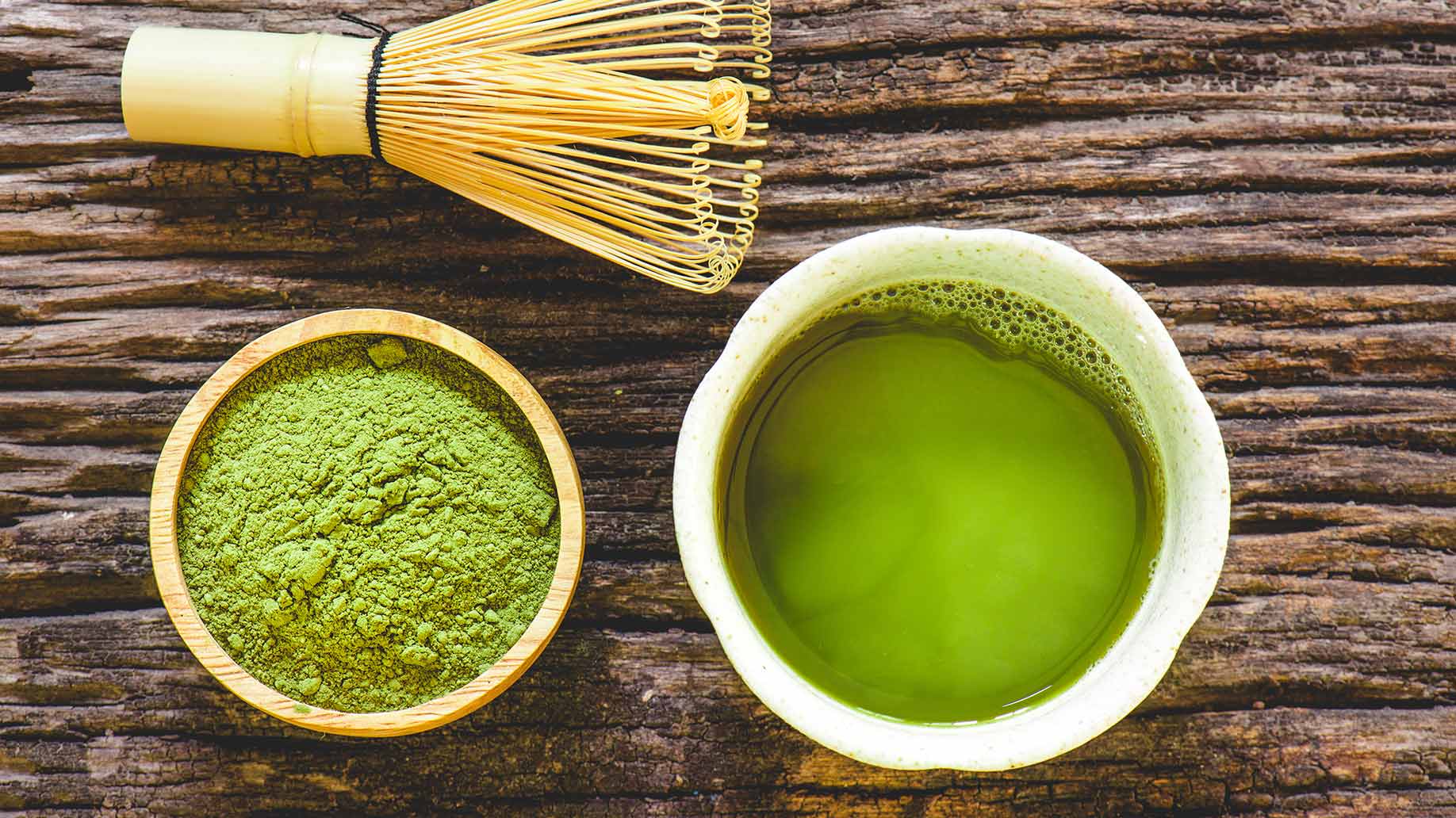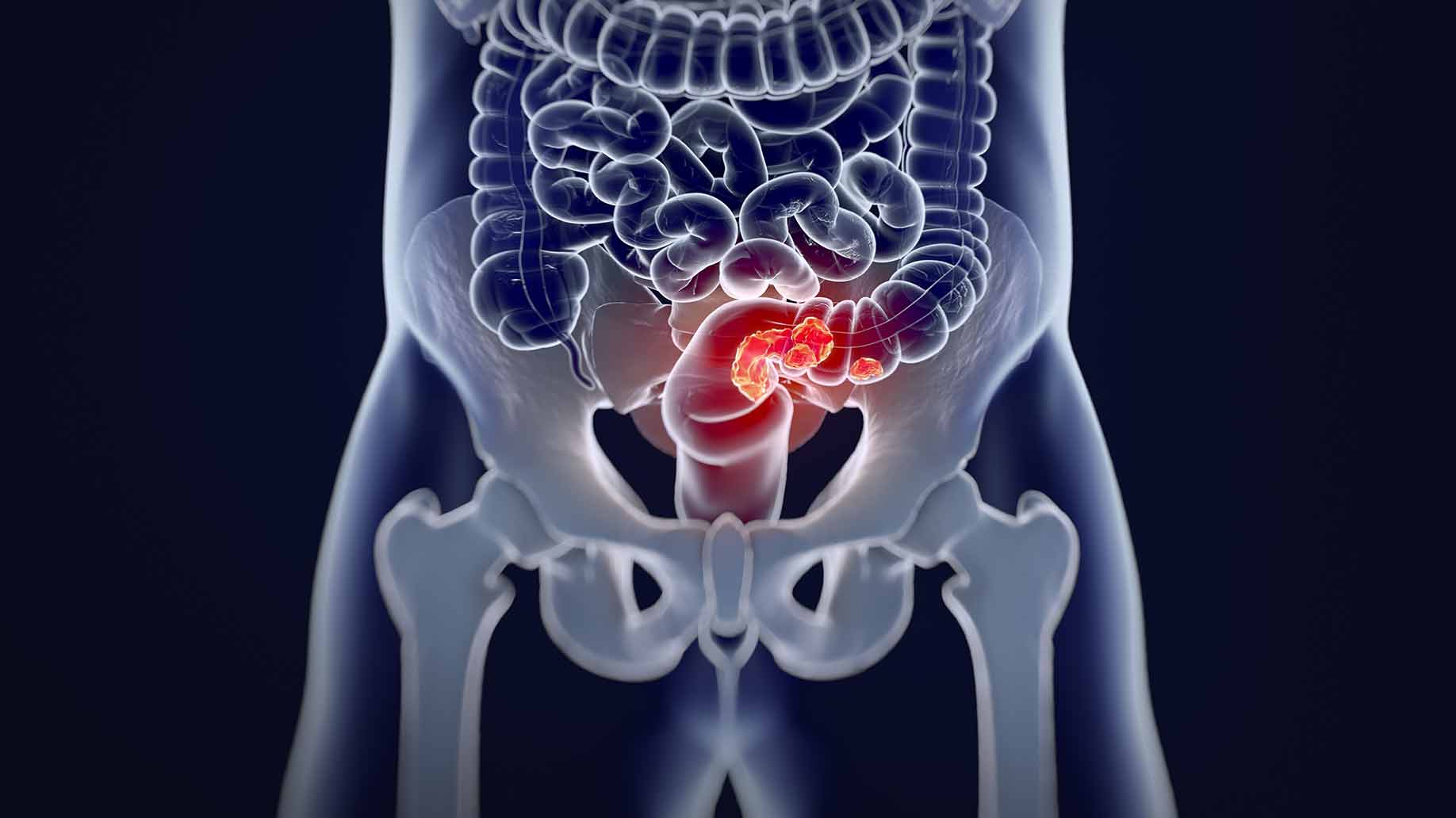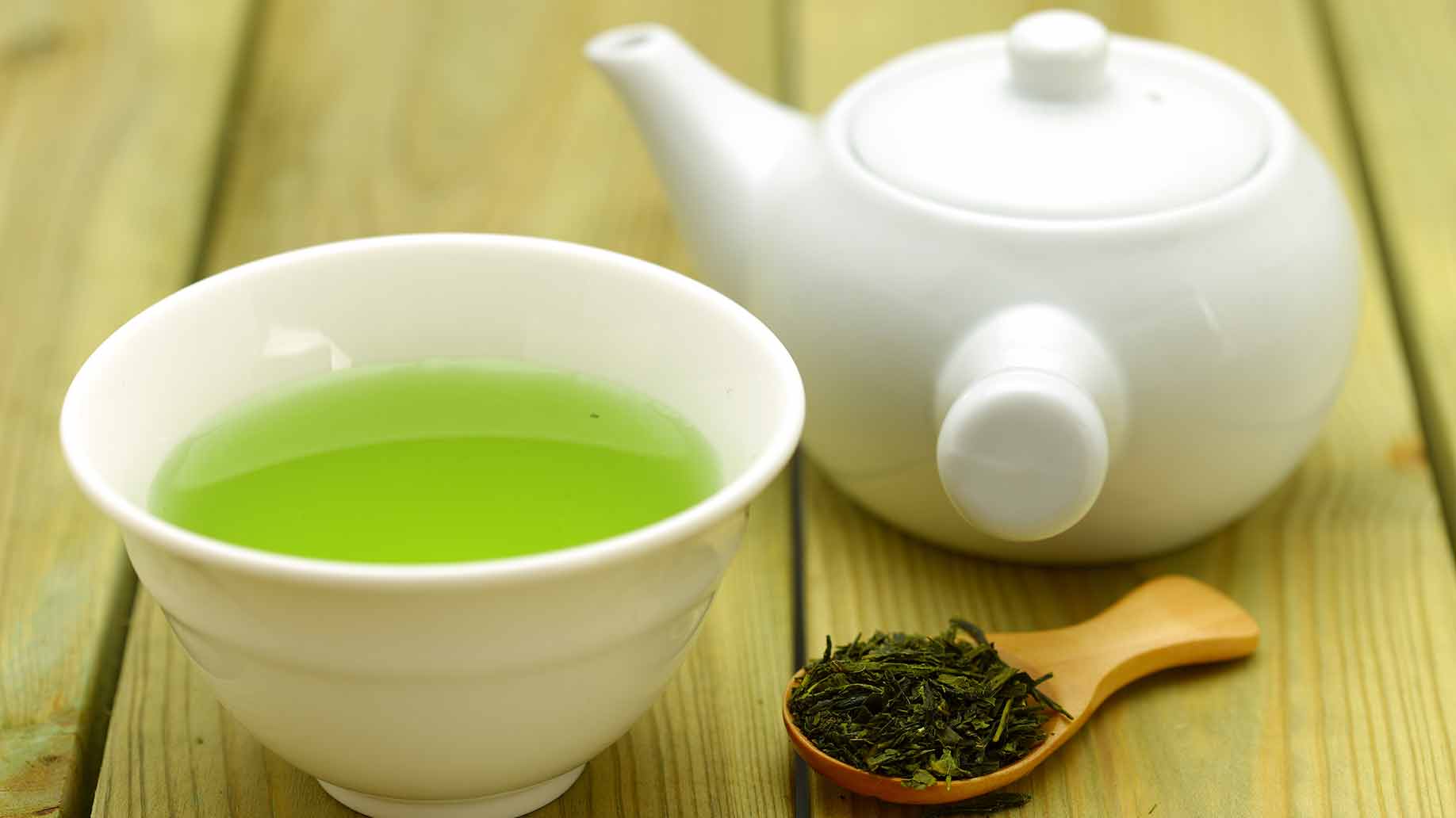For centuries green tea has been one of the most popular beverages consumed in Japan and China. Its popularity is now rising in the west.
A 2014 article in the Washington Post reports that Americans are drinking 40% more green tea than they did in 2000. Much of this rise in consumption is due to the increasing knowledge of green tea’s numerous health benefits.
What is Green Tea?
Green tea, black tea and oolong tea are all made from the leaves of the Camellia sinensis plant, but are processed differently. To make green tea, freshly harvested leaves are immediately steamed to prevent oxidation and fermentation. This process preserves the green pigment in the leaves and many of the natural polyphenols.
Polyphenols are micronutrients that come from certain plant-based foods. Laboratory research has shown that green tea leaves contains 6 times more phenolic compounds than an equal weight of black tea leaves.
Most of the polyphenols in green tea are a type of flavonoid known as catechins. There are 6 primary catechin compounds in green tea. Of these the most abundant and most active is a powerful antioxidant called epigallocatechin gallate (EGCG). EGCG has been widely studied for its role in preventing and treating diseases.
Recommended:
Matcha Green Tea

Matcha is a fine powder made from Camellia sinensis leaves that are grown in shade. The low levels of sunlight cause the plants to produce more chlorophyll, turning them a deeper shade of green.
After harvesting, the stems and veins are removed from the leaves. The leaves are then dried and grounded into a powder which is whisked into hot water or milk to create a concentrated green tea beverage.
When you drink matcha, you are consuming the entire tea leaf and not just a tea infusion with strained tea leaves. This means a cup of matcha is a much richer source of catechins than a cup of brewed green tea.
One analysis found that the concentration of EGCG in matcha was at least three times higher than the highest levels found in standard green tea. The shade-growing process causes the tea plant to produce more L-theanine and caffeine, so matcha is richer in both.
L-theanine is an amino acid which has a calming, relaxing effect when consumed on its own. In tea, it appears to have a synergistic effect with caffeine, helping to promote wakefulness and attention while mitigating caffeine side-effects such as raised blood pressure.
A study published in Nutritional Neuroscience found that a combination of L-theanine and caffeine improved alertness and cognitive performance while reducing tiredness.
Recommended:
- Matcha Green Tea Powder – Organic, 1.06 oz (30 grams)
- Matcha Green Tea Powder – Organic, 4 oz (113 grams)
9 Evidence-Based Health Benefits of Green Tea
1. Lowers the Risk of Breast Cancer

Laboratory research has shown that the EGCG in green tea inhibits the proliferation of human breast cancer cells and decreases their viability. In one study, rats with mammary gland tumors were fed a diet containing green tea catechins or a standard diet. After 36 weeks, 94% of the rats in the catechin group survived, compared to 33% of rats on the standard diet.
A case–control study conducted in Southeast China investigated the relationship between green tea consumption and breast cancer. Researchers collected diet and lifestyle data from 1,009 female breast cancer patients and 1,009 healthy age-matched controls during a face-to-face interview. Participants were asked about their tea consumption patterns including questions about types of tea they drank and the usual frequency of cups consumed.
The risk of breast cancer was significantly lower for green tea drinkers and declined with increasing duration, quantity and frequency of green tea consumed. Cancer risk was lowest for women who had been drinking 2 or more cups a day for 20 or more years. Those who drank the most tea had a 39% reduction in cancer risk.
A meta-analysis published in Carcinogenesis examined population studies which provided data on green tea or black tea consumption and breast cancer risk. The combined results from 4 studies indicated that women who drank the most green tea had a 20% reduction in risk of breast cancer compared to those who drank the least. Interestingly, the data also indicated that high black tea consumption slightly increased the risk of breast cancer.
Researchers of another study found that, compared to non-tea drinkers, estrogen levels were 13% lower in women who regularly drank green tea and 19% higher in women who regularly drank black tea. Estrogen is known to promote breast cancer. This suggests that green tea may reduce breast cancer risk due to its cancer-fighting catechins and by lowering estrogen levels.
2. Lowers the Risk of Colorectal Cancer

Since green tea is orally ingested, its polyphenols are readily available to organs in the digestive tract such as the colon.
Laboratory research has shown that EGCG or a combination of green tea catechins inhibits the growth of human colon cancer cells and induces cancer cell death. Research on rodents has shown that green tea inhibits several inflammatory markers associated with colon cancer and exerts a potent preventive effect on colon carcinogenesis.
A large Chinese cohort study examined the effects of green tea consumption on colorectal cancer risk. Researchers analyzed data from health and lifestyle interviews with 69,710 women aged 40 to 70. Participants were asked about the type, amount and frequency of tea consumed. Information on tea consumption was reassessed in a follow-up survey 2 to 3 years later.
During 6 years of follow-up, 256 women developed colorectal cancer. Analysis revealed that women who reported drinking green tea regularly had a 57% lower colorectal cancer risk. The reduction in risk was most evident among participants who reported regular tea drinking at both the initial and follow-up surveys. The protective effects of green tea persisted after adjustment for known cancer risk factors.
A pilot study published in Cancer Epidemiology, Biomarkers & Prevention tested the efficacy of green tea extract for the prevention of colorectal adenomas (benign tumors that are the precursors to most colorectal cancers). Researchers recruited 136 patients who had their colorectal adenomas surgically removed.
After ensuring they were still adenoma-free a year later, participants were randomized into 2 groups. The treatment group received supplements containing 1.5 grams of green tea extract per day and the control group received no supplements.
After 12 months, the patients underwent a follow-up colonoscopy. In the green tea extract group, 15% of patients showed a recurrence of colorectal adenomas compared to 31% of patients in the control group. The size of relapsed adenomas were also significantly smaller in the green tea group than in the control group.
3. Reduces Abdominal Fat

Green tea appears to be particularly effective at targeting visceral fat. This type of fat is stored in the abdominal cavity and is associated with heart disease and type 2 diabetes.
Research suggests that the caffeine and catechins in green tea work synergistically to augment the release of energy from stored fat.
In one study, 10 men spent 24 hours in a respiratory chamber on 3 separate occasions after ingesting either green tea extract, caffeine or a placebo. Green tea extract caused the men to burn significantly more calories. Caffeine alone had no effect on calorie burning compared to the placebo.
A trial published in the journal Obesity investigated the body fat reducing effects of green tea. Researchers recruited 240 Japanese men and women with visceral obesity. The volunteers were randomized into 2 groups. Both groups were given cans of green tea beverages to drink daily with their evening meal. The treatment group’s beverage contained 583 mg of catechins and the control group’s beverage contained 96 mg of catechins.
After 12 weeks, the high catechin group had lost significantly more weight than the low catechin group. They also had a greater decrease in body fat mass, visceral fat area, waist circumference and hip circumference.
A study published in the Journal of Nutrition evaluated the influence of a green tea catechin beverage during exercise-induced weight loss. A total of 107 overweight and obese men and women were randomized to receive one bottle per day of a beverage containing 625 mg of catechins with 39 mg caffeine or a control beverage containing caffeine, but no catechins.
Participants were instructed to increase their activity level, with a goal of at least 180 minutes of moderate-intensity physical activity each week. They were also required to attend at least 3 supervised exercise sessions per week.
There was a trend toward greater loss of body weight in the catechin group compared to the control group throughout the 12-week trial. Percentage changes in total abdominal fat and subcutaneous abdominal fat were significantly greater in the catechin group.
4. Protects Against Type 2 Diabetes

Insulin (hormone) allows the cells to take in sugar from the blood to be used as fuel or stored as fat. When the cells become insulin resistant, blood sugar levels become too high, leading to type 2 diabetes. Research has shown that drinking green tea can increase insulin sensitivity and lower blood sugar levels.
A Japanese study published in the Annals of Internal Medicine examined the relationship between green tea and risk for type 2 diabetes. A cohort of 17,413 healthy men and women aged 40 to 65 were followed for 5 years. All participants completed a questionnaire on consumption of coffee and black, green or oolong tea. During the 5-year follow-up, 444 subjects developed type 2 diabetes.
Drinking 6 or more cups of green tea per day lowered the risk of diabetes by 33% compared to drinking less than one cup a week. Drinking more than 3 cups of coffee was also protective. There was no association between consumption of black or oolong teas and the decreased risk of diabetes.
A clinical trial published in BioMed Research International investigated the effects of green tea on diabetes risk factors. A total of 123 patients who had been diagnosed as pre-diabetic were randomly assigned to 2 groups. The experimental group drank one cup of green tea 3 times a day before meals for 14 weeks. The control group drank warm water.
During the trial, waist-hip ratio increased significantly in the female control group, whereas the female experimental group did not experience any changes. Green tea reduced ALT (alanine aminotransferase) levels in women by 13%. High blood levels of ALT is a predictor of type 2 diabetes. Another diabetes risk factor is decreased arterial pressure. Average arterial pressure did not decrease significantly in the green tea group, but men and women in the control group experienced a critical decline.
5. Protects Against Alzheimer’s Disease

Alzheimer’s disease is characterized by the accumulation of beta-amyloid plaque in the brain.
Several animal studies have shown that the main catechin in green tea, EGCG, helps to protect the brain from neurological disorders. Laboratory research has shown that EGCG binds to beta-amyloid and inhibits plaque formation. EGCG also reduces the toxicity of beta-amyloid in cells.
A Japanese study published in the American Journal of Clinical Nutrition examined the association between green tea consumption and cognitive function. Researchers collected data from 1,003 participants aged over 70. The subjects completed dietary questionnaires on how many cups of green tea they consumed in a typical week. Research assistants tested participants’ cognitive function using the Mini-Mental State Examination, one of the tools used to diagnose Alzheimer’s.
Higher consumption of green tea was associated with lower cognitive impairment. Drinking 4-6 cups of green tea per week or one cup per day reduced the risk of cognitive impairment by 38%. Drinking 2 or more cups a day reduced risk of cognitive impairment by 54%. The researchers note that their results might partly explain the lower prevalence of dementia and Alzheimer’s disease in Japan than in Europe and North America.
A study published in the European Journal of Clinical Nutrition examined the neural effects of green tea extract on brain activation in humans. Functional MRI (fMRI) brain scans were recorded while 12 volunteers performed a challenging working memory task. They each repeated the task 4 times at one-week intervals after consuming either: a 250 ml green tea drink, 500 ml green tea drink, 250 ml placebo drink or a 500 ml placebo drink.
The fMRI scans revealed that green tea increased activity in the dorsolateral prefrontal cortex, a key area that facilitates working memory processing in the human brain. The higher dose of green tea increased brain activity more than the lower dose. A similarly designed follow-up study showed that green tea improved performance on the working memory task.
6. Lowers the Risk of Cardiovascular Disease

Green tea helps to prevent heart disease and stroke in at least three ways. Anti-inflammatory flavonoids in green tea works to relax blood vessels, allows blood to flow more freely and reduces the chance of clots.
Catechins in green tea decrease the gut’s absorption of cholesterol, naturally lowering cholesterol levels. Antioxidants in green tea helps to prevent the oxidation of LDL (bad) cholesterol which leads to atherosclerosis (hardening and narrowing of arteries).
A study published in the European Journal of Cardiovascular Prevention and Rehabilitation tested the effects of green tea on the brachial artery. The width of this artery, which runs from the shoulder to the elbow, is a predictor of risk for cardiovascular disease. A wider artery reduces the risk of blood clots which can cause heart attacks and stroke.
A team of 14 healthy volunteers were given either 6 grams of green tea, 125 mg of caffeine (the amount contained in the tea) or hot water on 3 separate occasions. Dilation of the brachial artery was measured before and after they drank their beverage. Participants’ arteries significantly widened within 30 minutes of drinking the green tea. Neither caffeine nor water caused a significant effect.
A meta-analysis published in the American Journal of Clinical Nutrition investigated the effect of green tea on total cholesterol, LDL (bad) cholesterol and HDL (good) cholesterol. Researchers analyzed data from 14 trials with 1,136 participants. In all of the studies, the treatment group consumed either green tea or green tea extract and the control group consumed a placebo.
The results showed that green tea significantly lowered total cholesterol and LDL, and had no effect on HDL. The researchers suggest that green tea could be incorporated into a dietary program as part of public health policy to improve cardiovascular health.
A prospective population study published in the Annals of Epidemiology investigated the association between green tea consumption and cardiovascular disease among elderly Japanese people. A cohort of 14,001 participants aged 65-84 completed questionnaires about their frequency of green tea consumption. During 6 years of follow up, there were 1,224 total deaths and 405 deaths due to cardiovascular disease.
Compared to people who drank less than one cup of green tea a day, those who drank 7 or more cups reduced their risk of cardiovascular disease by an amazing 76%. Their risk for death by all causes was reduced by 55%.
7. Improves Oral Health

Numerous studies have shown the beneficial effects of green tea for oral conditions including periodontal diseases, dental cavities and halitosis.
Laboratory research has shown that green tea catechins restrict the development and colonization of harmful bacteria, such as Streptococcus mutans and Porphyromonas gingivalis, which cause tooth decay and gum disease. Green tea reduces bad breath by suppressing the production of volatile sulfur compounds.
A Japanese study published in the Journal of Periodontology investigated the relationship between the intake of green tea and periodontal disease. Researchers analyzed data from 940 men who underwent a comprehensive preretirement health assessment. A dentist examined each participant for signs of gum disease and all the men completed a questionnaire about their tea drinking habits.
The results showed that the men who drank the most green tea had the best periodontal health. For every cup of tea consumed per day, there was a modest decrease in the 3 signs of gum disease measured. Periodontal pocket depth, loss of connective tissue attachment and bleeding on probing were all significantly reduced in green tea drinkers.
A comparative study tested the anti-plaque efficacy of a green tea mouthwash A total of 60 healthy children aged 9-14 were given dental treatment (scaling and polishing) to bring their plaque levels to zero. They were then randomly assigned to receive one of three types of mouthwash: 50% green tea extract diluted in water, a commercial fluoride mouthwash or a prescription germicidal mouthwash containing chlorhexidine gluconate. The children were instructed to rinse their mouth twice a day after brushing.
After 2 weeks, the children were assessed for gingival status, plaque, oral hygiene and salivary pH. The green tea extract mouthwash was significantly more effective at reducing plaque than the other 2 mouthwashes. It was equally effective as chlorhexidine gluconate for maintaining healthy gums and more effective than fluoride. Green tea was also equally or more effective for sustaining pH levels and improving oral hygiene.
8. Protects the Liver

Oxidative stress plays a key role in alcoholic liver disease, non-alcoholic fatty liver disease and liver cancer.
Green tea catechins can help to protect against liver disease and can even help to treat existing liver conditions. The EGCG in green tea reduces oxidative stress in liver cells through its potent antioxidant activity.
A randomized controlled trial published in the International Journal of Molecular Medicine investigated the effects of green tea in non-alcoholic fatty liver disease (NAFLD) patients. NAFLD is a type of liver disease associated with poor diet, obesity, high cholesterol and diabetes.
Researchers recruited 17 NAFLD patients aged 20-70. The participants were randomized to receive cans of green tea beverages containing either 1,080 mg catechins, 200 mg catechins or a placebo with no catechin content. They were instructed to consume the beverages daily with meals. Patients underwent full physical examinations and abdominal CT scans to determine the size of their liver.
After 12 weeks, body fat was significantly reduced in the high-catechin group compared to the other 2 groups. The high-catechin group also had significantly reduced liver fat content and liver inflammation, as well as decreased blood levels of markers associated with liver disease.
A systematic review published in Liver International analyzed data from 10 studies on green tea and liver disease conducted in China, Japan and the USA. Eight studies demonstrated a significant protective role of green tea against diseases such as liver cancer, cirrhosis and fatty liver disease. Four studies showed a positive correlation between green tea consumption and improvement in signs of liver disease. Researchers concluded that increased consumption of green tea may reduce the risk of liver disease.
9. Increases Longevity

Green tea helps to lower the risk of life-threatening diseases such as diabetes, cardiovascular disease, Alzheimer’s and some types of cancer.
It is also reasonable to assume that drinking green tea would help to protect against premature death. Indeed, a number of population studies have provided evidence that people who regularly drink green tea tend to live longer than non-tea drinkers.
A Japanese study published in JAMA investigated the associations between green tea consumption and mortality. Researchers followed-up a cohort of 40,530 adults aged 40-79 for 11 years. None of the participants had a history of stroke, coronary heart disease or cancer at the start of the study. All of them completed a questionnaire about consumption of green tea, oolong tea and black tea.
Over the course of the study, 4,209 participants died. Analysis of the data showed that drinking green tea reduced the risk of death from all causes. Drinking 5 or more cups of green tea per day lowered the risk of death by 23% in women and 12% in men. (The researchers speculate that the difference may be down to the fact that more men in the study were smokers.) Black tea and oolong tea consumption was not associated with reduced mortality.
A very large Chinese study used data from the Shanghai Health Study to examine the link between green tea and mortality. A total of 51,920 men and 64,034 women aged 40–74 were interviewed in person about their tea drinking habits. The men were followed up for an average of 8 years and the women for an average of 14 years.
Over the course of the study, 2,741 men and 3,776 women died. Overall, green tea consumption reduced the risk of death during the study period by 5%. However, for participants who had never smoked, the risk was reduced by 11%.
A Chinese study published in the Journal of the American Geriatrics Society investigated the association between tea consumption and mortality in the very old. Researchers collected data on frequency of tea drinking from 9,093 adults aged 80 and above. Over the following 7 years, 6,280 participants died. Daily tea drinkers had a 10% reduction in mortality compared with non-tea drinkers.
Final Word
If you regularly drink tea or coffee, switching to green tea in particular is a good way to protect yourself against a variety of diseases. Coffee has its own health benefits, but green tea is a good option if you want to cut down on caffeine.
Don’t be put off by studies where participants had to drink 6-7 cups of green tea per day to reap the most benefits. Most of this research comes from Japan where tea cups hold around 4-6 ounces, much less than a typical 12-ounce coffee mug.
If you don’t like the taste of green tea, supplement capsules are available. These can vary widely in the amount of EGCG and catechins they contain. Learn to read the labels. A capsule containing 175 mg of EGCG is equivalent to drinking 2-3 cups of green tea.
Recommended:










I’m glad I came across your article about the benefits of green tea powder and matcha powder. Your statement how green tea protects your teeth from bacteria that cause tooth decay and gum disease caught my attention. Even before, I treat my smile as my best treasure because I understand how powerful smile can be. Now that I have children, I also want them to keep the same thought and philosophy. Since I can see their passion to keep a healthy smile, I will make sure to consider buying agree with tea powder so we can all enjoy the tea while keeping our teeth free from tooth decay.